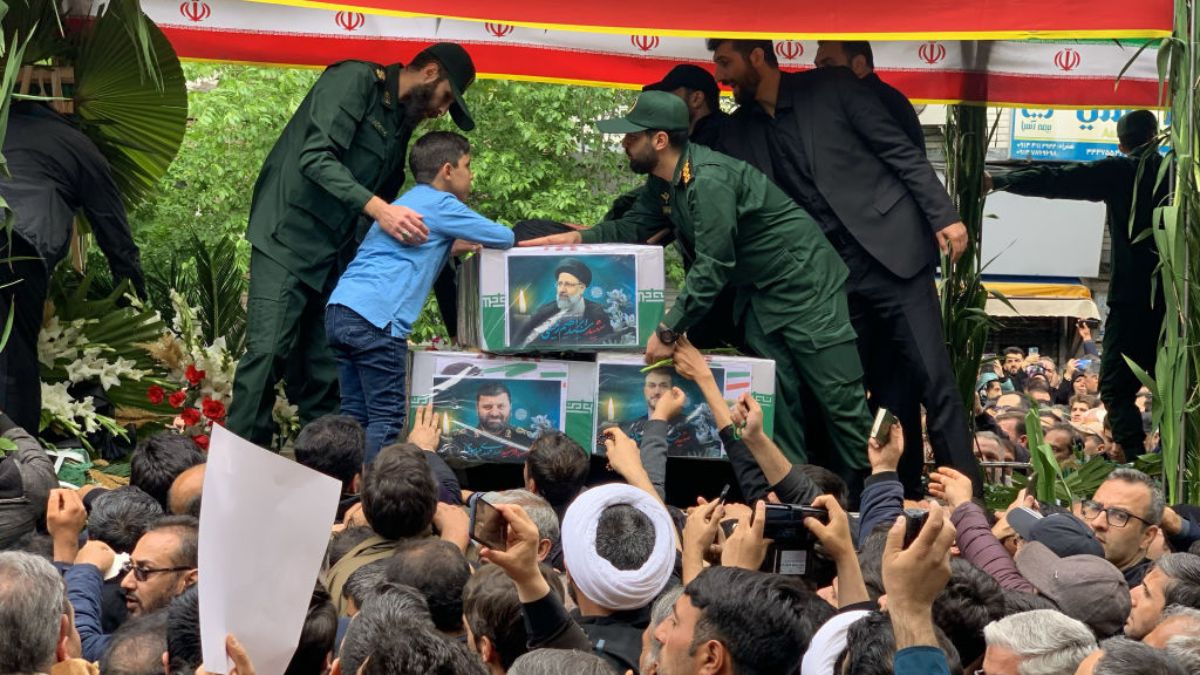Thousands of Iranians turned out to mourn President Ebrahim Raisi in the city of Tabriz on Tuesday, after he was killed in a helicopter crash near the Azerbaijan border at the weekend along with his foreign minister and seven others.
“Everyone has come to bid farewell to the martyred president and his companions regardless of their faction, ethnicity or language,” said Tabriz lawmaker Masoud Pezeshkian.
While state television reports that a sizable gathering turned out in Tabriz to pay tribute to President Ebrahim Raisi following his death in a helicopter accident, some insiders observe a marked difference in the level of public mourning when compared to previous memorial services for other prominent figures.
Although Iran declared five days of mourning for Raisi, there was not nearly as much emotional rhetoric as after Qasem Soleimani, a senior Revolutionary Guards commander killed in 2020 in Iraq by a US missile, whose funeral drew large crowds of grieving people, crying with anger and sorrow.
The president’s passing occurred during a period of worsening tensions between the general public and the clerical leadership over matters ranging from tighter social and political regulations to difficult economic times. The harsh official crackdown that resulted in numerous detentions and executions in 2022 after a young Iranian-Kurdish woman died in jail caused widespread unrest that Iranians today remember with grief.
According to some observers, millions of Iranians have given up on the idea that the country’s ruling mullahs can pull out of an economic catastrophe brought on by a confluence of US sanctions, poor management and corruption.
Impact Shorts
More ShortsIn order to consolidate the dominance of the religious establishment, suppress opponents, and take a firm stance on foreign policy matters like the nuclear negotiations with the United States to resurrect Iran’s 2015 nuclear agreement, Raisi implemented the strict policies of his mentor, Supreme Leader Ayatollah Ali Khamenei.
The strict Guardian Council, which has frequently disqualified even well-known conservative and moderate officials, must screen all candidates before they can enter the race, so it’s unlikely that the general direction of policy will alter.
Although Raisi was regarded as a front-runner to succeed the 85-year-old supreme leader when he passes away, two insiders claimed that six months ago, his name was removed from a list of possible successors due to his declining popularity.
According to observers, Raisi’s passing has created “great uncertainty” in the succession and stoked rivalry among the hardliners over who will replace Khamenei as the supreme leader of the nation.


)

)
)
)
)
)
)
)
)



